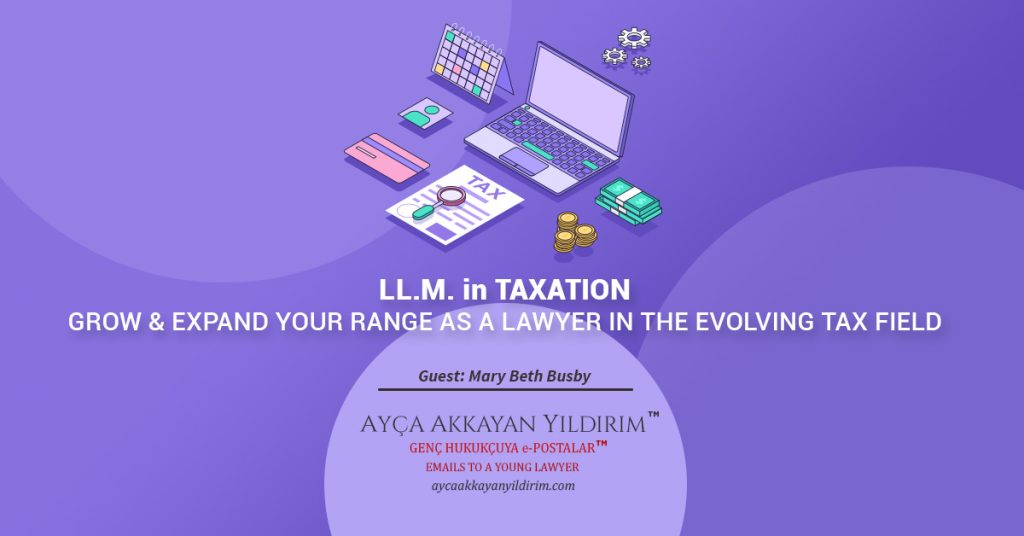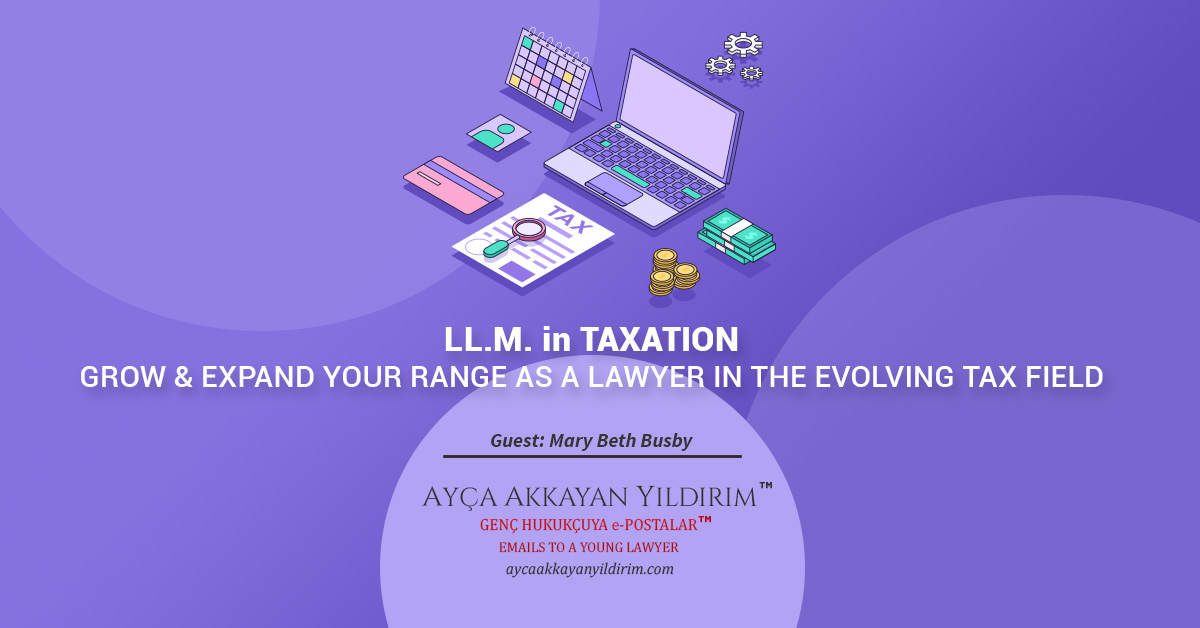Tuesday, January 10, 2023


Date : January 10, 2023
To : Young Lawyers
Re : LL.M. in TAXATION: GROW & EXPAND YOUR RANGE AS A LAWYER IN THE EVOLVING TAX FIELD
INTERNATIONAL LL.M. PROGRAMS: NORTHWESTERN UNIVERSITY PRITZKER SCHOOL OF LAW, CHICAGO, IL, USA
I sincerely thank Mary Beth Busby, Director of Graduate and International Program Admissions, for taking the time to answer my questions. GHK
GHK: Director Busby, the globalization of the economy creates a demand for professionals with knowledge of international taxation. What kind of a role Northwestern Pritzker School of Law’s LL.M. in Taxation plays in this regard?
MBB: We require that all students take at least two semesters of international tax. Many students will opt to take additional international tax courses; some even earn a certificate in the area. We offer many electives in the field of international tax, including specialized classes on tax treaties, transfer pricing, and controlled foreign corporations. Beyond that, I think it’s important to note that there is so much overlap between the different areas of tax. The curriculum at Northwestern requires that Tax LL.M. students take two semesters of the four pillar areas of tax: corporate, international, partnership, and property, so our graduates are prepared to deal with almost any issue that could arise – whether domestic or international.
GHK: Some people might see tax law as a domestic field and think that international students can’t benefit from an LL.M. in another country. How would you answer such concerns?
MBB: We have many international students in our Tax LL.M. Program. Most of our international students are practicing tax attorneys who work at large international tax or accounting firms where the nature of the work is cross-border or international. Thus, having a knowledge of U.S. tax law can be extremely beneficial to their work.
GHK: Students enrolled in the Tax LL.M. Program can choose to earn a certificate in Corporate Tax, International Tax, Tax Controversy, and Wealth Transfer and Legacy Planning. How do these certificates differ from the LL.M. in Taxation Program?
MBB: Certificates are concentrations within the Tax LL.M. Program. Certificates offer students the option to focus their studies in a specific sub-area of Tax. To earn a certificate, students must take at least ten credit hours of coursework in that area.
GHK: Can anyone take the courses offered in the Tax Certificates without pursuing an LL.M. in Taxation, or do they have to enroll in the LL.M. Program?
MBB: The tax certificates are primarily available to students in the Tax LL.M. Program. Upon occasion, we have allowed a student in the General LL.M. Program to earn a certificate – usually in the area of international tax. We also offer a non-degree option through which students can earn certificates. The certificate is not available as a stand-alone program or credential.
GHK: Since LL.M. degrees are typically expensive, do you think LL.M. in Taxation is worth the cost due to its effect on landing one’s first tax job?
MBB: I do! Having a specialized tax degree can be a huge selling point in the tax law job market. In fact, many employers will only hire candidates who have an LL.M. in tax. This is true for both domestic J.D. graduates and international LL.B. graduates, alike.
As to the expense, I would encourage prospective applicants to look beyond the “sticker price” of a US LL.M. degree. Most schools provide scholarships to help defray the cost of the program. At Northwestern, admitted applicants are automatically under consideration for a scholarship award. Scholarships typically cover a portion of the cost of tuition.
GHK: Many foreign law graduates are interested in pursuing an LL.M. degree in the United States. However, when it comes to LL.M. in Taxation, not only international students but also recent J.D.s and experienced US attorneys are pursuing LL.M. degrees in Taxation. What do you think is the reason for that?
MBB: Tax is such a complex and expansive area of law, so JD graduates who want to work at the highest levels of tax law need a Tax LL.M. not only as a credential but also because of the specialized and in-depth knowledge they will gain from the program. Moreover, many law schools only offer a handful of tax classes for J.D. students, which is typically not sufficient preparation for those who want to practice tax law.
GHK: What are the career prospects for graduates of an LL.M. in Taxation Program? In other words, what career opportunities exist upon completion of the Program, and what is the level of employment of the past students?
MBB: All of our students that graduated in 2021 and 2022, international and domestic, were employed after graduation. This year so far, approximately 1/3 of our class has already accepted offers for post-graduation employment. As far as the career opportunities that exist, the key difference for some international students relates to their desire to return to their country of origin or to remain in the United States. Students that desire to return to their country of origin after graduation are invited to participate in a job fair hand-tailored for that purpose. For those who wish to remain in the United States, their visa status becomes relevant. If the student requires sponsorship, their choice of employer can be more limited. Happily, our students are heavily recruited by large international accounting firms, which happen very welcoming of international students, even those who require sponsorship. We view and encourage recruiters to view, our international students as adding valuable experience to tax-attorney positions throughout the industry. While it may be more challenging to navigate the job search as an international student, our success rate with placement proves that it is a challenge we are well prepared to meet.
GHK: Thank you for taking the time to speak with us, Director Busby. In closing, is there any general advice you could share with our readers regarding the LL.M. in Taxation application process?
MBB: Absolutely! First, my primary focus when reviewing a Tax LL.M. application is the commitment to and interest in tax law. Thus, it is important to highlight tax coursework, tax-related work experience, and participation in professional and extra-curricular tax organizations and activities. It is also a good idea to use the personal statement to outline your interest in tax, the reasons for pursuing a Tax LL.M., and post-LL.M. career goals. Other factors include overall academic performance and academic performance in tax courses, with more importance being placed on the latter. Finally, don’t be afraid to ask questions; I love communicating with applicants and am happy to answer questions!
